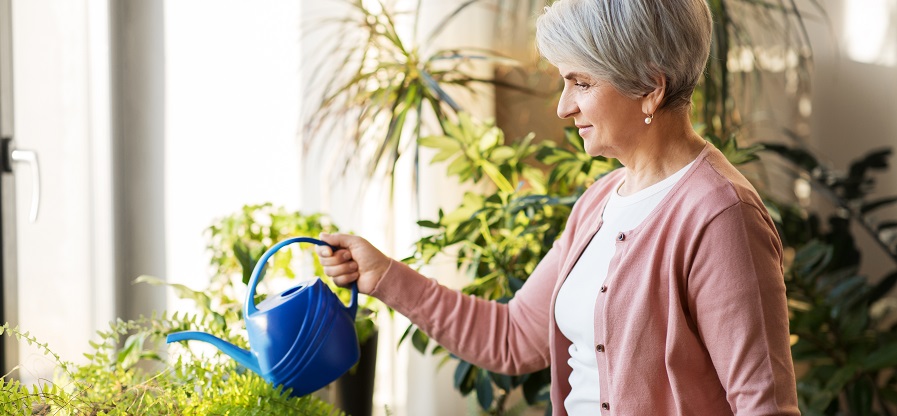This week I viewed Calgary’s Wordfest and the National Arts Centre’s online interview with Daniel Levitin, author of the bestselling book Successful Aging. Released in January, the book has been on the bestseller list for months. A specialist in the neurological study of memory and creativity, Dr. Daniel argues convincingly that “old age has gotten a bad wrap: the societal narrative about aging is wrong.”
Some –particularly younger people– take it for granted that memory slows down with age, as does judgment or rational thinking, but Levitin believes that is untrue. He says, “Older adults are better at making decisions than younger people.”
As Dr. Daniel remarks, “Sometimes the difference is in the stories we tell ourselves. When I taught at Berkeley and McGill, I had 19-year-olds who were losing cell phones all the time or losing their glasses or showing up at the wrong classroom or forgetting what day the exam was. When you’re 70, you might miss appointments, too, or find yourself in the kitchen and not know why you’re there or forget names or lose your cell phone. But, while the 20-year old says, ’Gee, I’ve got to get more than five hours of sleep,’ or ’I have a lot on my plate,’ at 70, you think you must have Alzheimer’s. It’s the same behaviour, just a different narrative.”
Levitin is a neuroscientist, psychologist, professor emeritus at McGill University, and faculty fellow at UC Berkeley. His highly researched book provides fascinating insights into how our early childhood experiences, personalities, social relationships, and lifestyles all drive our brain’s development, dispelling stubborn myths around the inevitability of cognitive decline. Arguing against ageism and highlighting the unique gifts of older people, Levitin shows us what we can all do to become sharper, happier, and wiser as we age.
His findings erode the idea that older adults naturally grow uninterested and uninteresting as they age and that an inevitable lethargy sets in over time. According to Dr. Daniel, there are apparent “neurochemical changes that make older adults happier.” What he terms the ‘positivity bias’ or the tendency in older adults to see the good qualities in people and situations, makes for the happiest and often most productive adult demographic neurologists have studied. In fact, the peak age of happiness for Canadians is 72, while across the globe, the age is 82.
“As a society, we need to change the conversation about aging and stop marginalizing older adults. We need to create a society where older people are valued for their experience and integrated more into daily life. It’s a great untapped resource,” Dr. Daniel says.
His method for successful aging, easy to remember, harder to follow, is based on the acronym COACH. Here’s what it stands for:
C is for curiosity
O is for openness
A is association with others
C is for conscientiousness
H is for healthy lifestyle including diet, exercise and sleep
After turning 60, staying in the game is the most important. Levitin emphasizes that the tendency to become complacent and unengaged can set it. COACH is a way to resist that. Curiosity about new ideas, opening yourself to trying new things, and most importantly, associations with other people, meeting new people and having conversations, are the most crucial traits to maintaining neurological health. I was thrilled to learn that keeping up conversations is the most critical activity older adults can engage in to maintain cognitive health. According to Levitin, conversing is the most complex process of all human activities.
It’s not unreasonable, then, to try to make the most of self-isolation: to stay open and cherish our associations and conversations with others. Lately, however, I’ve been reading a variety of posts on Twitter and Facebook regaling us to do the opposite. “Don’t push yourself,” people say. “Take it easy.” I must disagree —as does Dr. Daniel. By conscientiously adhering to a healthy lifestyle, which at this time means adhering to science-based guidelines for self-isolating, and not engaging in risky behaviours, older adults can survive the virus in a better state of mind than expected.
Levitin, following his own advice, hasn’t gone anywhere since March 7. Instead, he practises a daily schedule whereby he must try to learn something new. “I pretend,” he explains, “I’ve just taken on a teenager as a summer intern. I’m going to hover over him and schedule his day. If we do this conscientiously, if we manage ourselves during this pandemic, we’ll emerge enriched.”
Dr. Daniel learned from the best: his parents, who are both in their eighties. His father has just had his contract renewed to lecture at the University of California. His mother, a long-time author who has recently switched over to painting as her artistic endeavour, is exhibiting her work in galleries in Los Angeles.
These might sound like ideal stories, but I don’t think they are far-fetched. Creativity exists in many different fields, not just the arts. Older adults now have the time to pursue new activities, to ponder new thoughts, to listen to more music, to read more books, to write and draw, to sing, dance, and exercise, and most importantly to keep up conversations with those they love and admire. Today I went for a hike in Bronte Provincial Park in the rain. If someone suggested I would do that two months ago, I would have replied: ”not a chance.” But there I was, yellow raincoat, hair pulled back, hood zipped up, as pleased with my walk in the woods as with writing the next chapter of my book.
We were advised when we were young to use our free time wisely. Now that the kids are grown and we’re not expected to do much more than stay home, it’s the perfect moment to improve knowledge, know-how and creativity. Get stronger. Be open. Be curious. Support a good cause. Share with those less fortunate. Like Dr. Daniel, we can do that right in our own backyard. By the end of the pandemic, we’ll all have something to show for being the conscientious and responsible people we are.
 |































